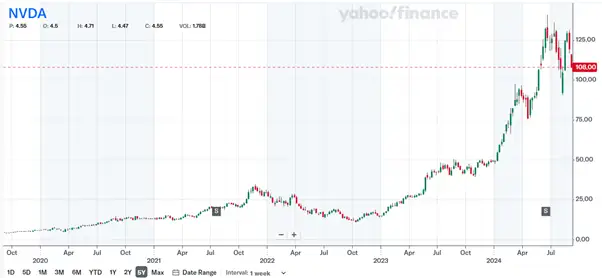Recently a subscriber to my Global Citizen service asked me about her investment strategy. A friend had told her to keep her investments in the United States rather than Europe, since the return on the former is higher.
She wanted to know if this was a good plan.
That's a good question. In addition to being International Living's expert on global diversification, I'm also an experienced stock market analyst… so I have some thoughts...
There's no one-size-fits-all investment strategy. Every person is different, especially when it comes to their tolerance for risk, their ability to sustain losses, and above all, how much time they have left in the market. Generally, the older you are and the less you invest, the more value you should assign to risk, not short-term returns.
With that in mind, here's what I told the subscriber:
First, it's better to invest in assets that are undervalued relative to others because you're more likely to get good gains from them. European equities are cheaper than US equities because there isn't as much excess money floating around in the EU to buy them. That means they’re more likely to see future gains than US equities.
Second, past performance is no guarantee of future return. In my opinion, the US market is overvalued. US equities are likely to revert to the mean—in other words, to lose value as they fall back down to their long-term trend.
Third, geographical diversification is just as important as asset class diversification. I wouldn’t want to have all my eggs in the US basket. Political factors are likely to see a decline in US equities and the dollar's value. Although your percentage gains might be higher in US equities priced in dollars, if the dollar declines relative to the euro, European equities could outperform them even if their nominal gains are less.
Something I didn't say in my response to the subscriber, but which I suspect motivated her query: the time to chase short term gains in the stock market is when you are some years away from retirement and still earning. That’s especially true if you’re trying to save up for an overseas move. Here’s why.
Consider NVIDIA stock (NASDAQ: NVDA). The chip maker has been the darling of the artificial intelligence boom and has more than doubled in price this year:

On Tuesday last week, however, the company’s valuation declined by the largest one-day amount in stock market history. Investors were spooked by the company’s massive overvaluation. Right now, it would take nearly 75 years for the company to earn enough money to justify its stock price. The long-term average for most companies is between 15 and 20 years.
Now, if you're in your 30s or 40s, seeing your brokerage or retirement account decline by 15% or 20% over a few days or weeks is no big deal. There’s have plenty of time for it to bounce back.
But once you're in your late 50s or 60s—or in retirement—it's impossible to sustain such losses unless you have a lot of money invested. If you don't, the temptation to sell before the price falls even further is too much.
The most popular visa types these days require passive income. That's why I advise people planning an overseas move to wind down their exposure to high-flying speculative stocks like NVDA during the decade before they plan to move. I tell them to take the proceeds and put them into dividend earning stocks that will pay out a regular monthly income in years to come.
Remember, when you appear before a consular official applying for a visa to another country, they're not going to ask you how much your stock portfolio has grown recently. They want to know how much money you're going to have every month to live on.
The time to get ready for that question is years before you arrive at the embassy for your interview!
How to Get a Second Passport
How to Get a Second Passport
According to Forbes, 133 million Americans could be eligible for an EU passport…
Our expert shows you 4 paths to a European passport (and the one he’s taking), plus the most common way for Americans to get a second passport in Europe.
Claim your free report and bonus video when you sign up for International Living's Daily Postcards.

By submitting your email address, you will receive a free subscription to IL Postcards, Overseas Dream Home, The Untourist Daily and special offers from International Living and our affiliates. You can unsubscribe at any time, and we encourage you to read more about our Privacy Policy.
